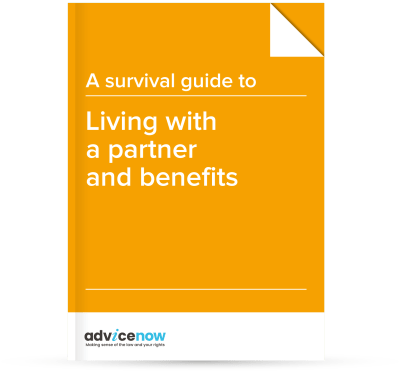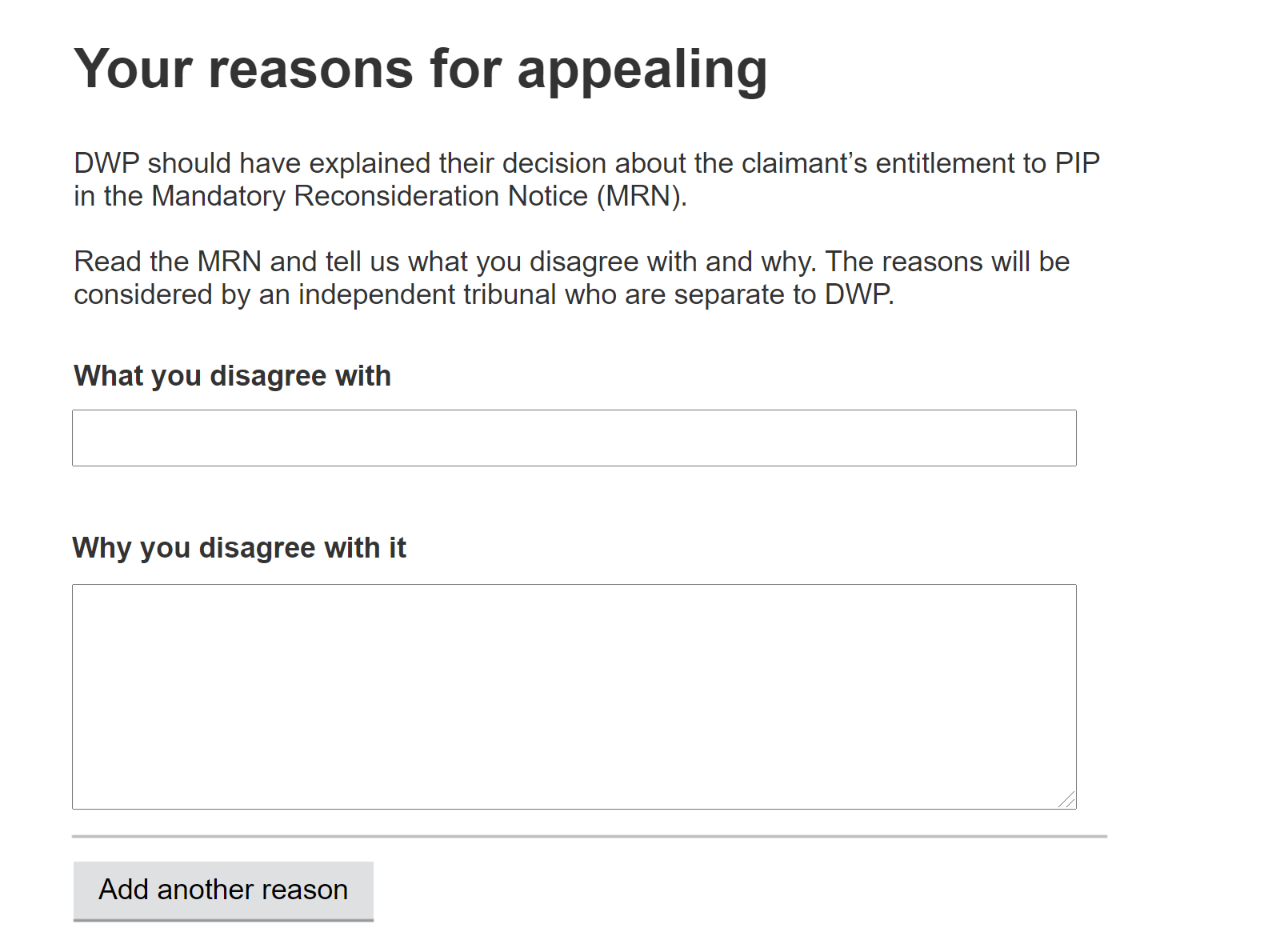If you start living with a partner, it will have an impact on some of your benefits. That is because you must claim some benefits (called income-based benefits) as a couple. The benefits office will take both of your incomes and savings into account when working out if you are entitled to these benefits.
We’ve listed these income-based benefits below and explained any special rules for each of these benefits.
Income-based benefits
Tax credits
Do you get income-based benefits?
Income-based benefits are: Income Support, Income-related Employment and Support Allowance, Income-based Jobseekers Allowance, Housing Benefit, Council Tax Reduction, Pension Credit, Child Tax Credit, Working Tax Credit, and Universal Credit.
These STOP if you start living with a partner. They also stop if you are claiming as a couple and then split up (if you are married or in a civil partnership, this only applies if it’s likely to be a permanent separation). Once your tax credits stop, you cannot usually get them back. You should get advice to see what is best for you to do - you may need to claim Universal Credit, especially if you have children.
Pension Credit
If you move in with a pension age partner, the amount of Pension Credit you are entitled to will be affected. Your partner’s income and savings will be taken into account. You may get less money (if your partner has too much income or savings, Pension Credit may stop) or more money (if they do not have much income or savings). If you start living with a partner who is under pension age, you will not usually be able to get Pension Credit anymore. If you are in this position, get advice - you may be able to claim Universal Credit, or your partner may be on other benefits which can include you. You should make sure you tell the benefits office to avoid being overpaid.
Pension age is rising so, if you are not sure whether your partner is pension age, you can check using their date of birth on GOV.UK.
Universal Credit (UC)
The calculation of Universal Credit will be affected by living with a partner and you may get less or more money (depending on their income and savings). If you have children, you will have to decide which of you is the ‘responsible carer’ (this affects what you have to do to get Universal Credit, such as looking for work). If you and your partner both have children then you may find that you do not get child elements for all of them, depending on when they were born.
If you are not on Universal Credit (UC), and you start living with a partner who is on UC, then you will be treated as claiming UC and any old income-based benefits (the ones replaced by UC) are likely to stop. It’s important to report the change though, so that you get the right amount for your new circumstances and avoid overpayment of your old benefits.
Housing Benefit
The calculation of Housing Benefit will be affected by living with a partner and you may get less or more money (depending on their income and savings). As long as the person claiming Housing Benefit hasn’t moved into a new local authority area and still has rent to pay, Housing Benefit can continue, but it may be wiped out by your partner’s income and savings. If entitlement does stop, you won’t be able to get it back unless you are in supported or temporary accommodation.
Council Tax and Council Tax Reduction
The biggest effect on Council Tax if you start living with a partner is that if you were previously the only adult in the household and you had to pay council tax, you won’t usually be entitled to a 25% reduction in your Council Tax anymore (called the Single Person Discount).
If you are also claiming Council Tax Reduction or Council Tax Support (a benefit you claim from the council which reduces your Council Tax bill), you need to let the council know so they can recalculate your Council Tax, and then check whether you are still entitled to Council Tax Reduction (which may be affected by your partner’s income or savings).
Income Support
If you get Income Support, starting to live with a partner may mean this benefit stops completely. That will apply if you have been getting Income Support as a single parent of a child under 5. If you have been getting Income Support for another reason, for example, because you are the carer of a disabled person, the calculation will be affected by living with a partner and you may get more or less Income Support. It is possible that your partner’s income or savings may mean your Income Support is reduced or completely wiped out. If your partner works 24 hours per week or more, your Income Support will definitely stop. If it does stop, you will not be able to get it back. This doesn’t mean you have to claim Universal Credit, but you should get advice because claiming Universal Credit might help you to get some more money as a couple.
In any case, you must report the change to the benefits office to avoid being overpaid.
Employment and Support Allowance (ESA)
If you get contributory Employment and Support Allowance based on your National Insurance, this will NOT be affected by living with a partner. However, if you get any income-related Employment and Support Allowance, it will be affected. It can be difficult to tell if you get any income-related Employment and Support Allowance (you may get it on top of your contributory ESA, or by itself). If you are not sure, try to get advice from someone who can look at your benefit letter, or ask the ESA office.
Income-related ESA doesn’t necessarily stop when you move in with a partner, but the calculation changes and if your partner has income or savings, this can reduce or wipe out your benefit. If your partner works 24 hours or more per week, income-related ESA will definitely stop. If you have any contributory ESA which you have been claiming since before UC was available, you may still be able to get your income-related ESA back if your circumstances change again. Get advice before claiming anything else (such as Universal Credit), as once you claim Universal Credit you won’t be able to get income-related ESA again.
Jobseeker’s Allowance (JSA)
If you get contribution-based Jobseeker’s Allowance, based on your National Insurance, this will NOT be affected by living with a partner. If you get Income-based Jobseeker’s Allowance, it will be affected. You will know you are getting income-based Jobseeker’s Allowance if you’ve been getting it for more than six months. Income-based Jobseeker’s Allowance will stop if your partner works 24 hours or more per week. Even if that is not the case, the calculation will change and if your partner has income or savings, this may reduce or wipe out your benefit.
If income-based Jobseeker’s Allowance stops, you cannot get it back. You may need to claim Universal Credit to avoid missing out but try to get advice first. In any case, make sure you report the change to the benefits office to avoid being overpaid.
If your partner cannot claim income-based benefits There are some differences to the income-based benefit rules if you start living with someone who can’t claim benefits themselves, for example because of their immigration status. You should get advice to check what you can claim and to make sure it doesn’t put your partner’s immigration status at risk. If your partner’s immigration status changes so that they can claim benefits, then you should get advice again, as this may mean your benefits have to change. |
REMEMBER – in any situation, if you start to live with someone on Universal Credit then you are treated as claiming Universal Credit and your tax credits, Income Support, income-based Jobseeker’s Allowance, income-related Employment and Support Allowance, and usually your Housing Benefit will stop.
Tax credits always stop if your relationship status changes (you split up with someone or start living with a partner), regardless of what other benefits you or your partner claim.
Your Pension Credit will usually stop if you start living with someone under pension age. If you get Housing Benefit, it will usually also stop in this situation.
You must still report these changes to the benefits office to avoid being overpaid.
Other benefits which may be affected
Usually, benefits which are not income-based are not affected, but there can be some effects which we have explained below.
Child Benefit
If each of you brings children from a previous relationship to the new family, only one child can count as the eldest for Child Benefit purposes. This is important because you receive an extra amount (£7.35 a week in 2022-2023) for the eldest child. However, there’s no limit on the number of children you can claim for.
If your partner has taxable income of over £50,000 and you receive Child Benefit, your partner has to pay a tax charge. They will have to complete a Self-assessment Tax Return to pay what they owe. If they have taxable income over £60,000, the charge will be the same as the amount of Child Benefit. You can choose to claim Child Benefit but not receive it to avoid the tax charge. That’s a good idea if you have children under 12 and don’t earn very much or nothing at all, because it gives you a National Insurance credit which could help you get State Pension later in life.
Benefit cap
The benefit cap sets a maximum limit on the amount of benefit that some working-age people can get. Even if the benefit cap does not affect you now, this could change when you live with a partner (especially if you and/or your partner have children). When you live with a partner, you will be assessed together, and your Housing Benefit or Universal Credit may be reduced to reach the level of the cap (the benefit cap doesn’t affect any other benefits).
If you or your partner, or a child under 18, receive a disability benefit or carer’s allowance, the benefit cap won’t apply to you. There are other situations when the cap doesn’t apply, which you can check on GOV.UK. If you are not sure whether the cap would affect you, get advice.
Bereavement benefit
Bereavement Support Payment is not affected by living with a new partner.
If you have been receiving Widowed Parent’s Allowance, your payments will stop when you move in with a new partner. If that relationship ends however, your claim can be re-instated. Widowed Parent’s Allowance stops when you reach State Pension age anyway.
Benefits which are never affected
Some benefits are never affected by living with someone. You claim these benefits as an individual and your partner’s income, savings or other property, and their hours of work, do not affect your entitlement.
Benefits which are never affected include:
Contributory benefits including Bereavement Support Allowance, State Retirement Pension, contribution-based Jobseeker’s Allowance and contributory Employment and Support Allowance.
Non-contributory benefits including Carer’s Allowance, Personal Independent Payment, Disability Living Allowance, Attendance Allowance, and Industrial Injuries Disablement Benefit.
If you are unsure
If you are unsure what effect moving in with your partner might have on your benefits, consult an adviser if you possibly can. See 'How to find an adviser' section below.
If you cannot find advice, use a benefits calculator. Read the questions carefully and answer the questions as if the change has happened.




